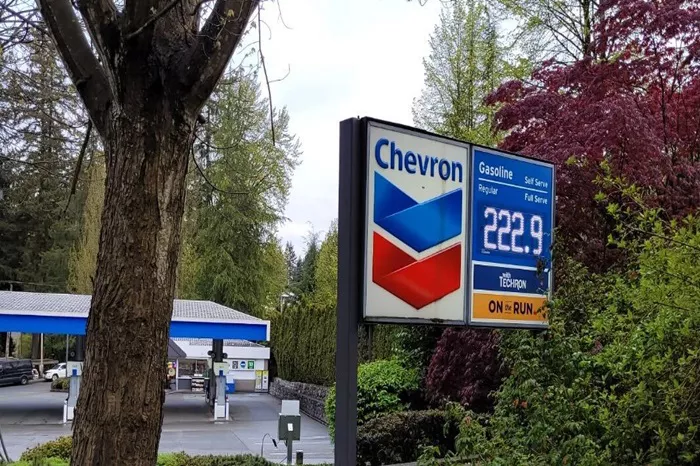Fuel prices in British Columbia (BC) have long been a topic of concern for residents and businesses alike. As one of the highest-priced regions for fuel in North America, understanding the factors behind these costs is crucial. From taxes to infrastructure, several key reasons contribute to the high cost of fuel in BC.
1.Carbon Taxes and Environmental Levies
BC’s commitment to environmental sustainability is reflected in its carbon tax policy, implemented to reduce greenhouse gas emissions. Introduced in 2008, the carbon tax initially set a precedent in North America by applying a levy on the purchase of fossil fuels, including gasoline and diesel. The tax started at $10 per tonne of CO2 equivalent emissions and has steadily increased over the years. As of 2024, it stands at $50 per tonne and is set to rise further.
The revenue generated from the carbon tax is earmarked for various environmental initiatives, such as clean energy projects and climate action programs. While lauded for its environmental benefits, the tax adds a significant cost to fuel prices in BC, directly impacting consumers at the pump. Critics argue that while the tax incentivizes greener choices, it disproportionately affects low-income households and businesses reliant on transportation.
2.Supply Chain Challenges
The geography of BC presents unique challenges to its fuel supply chain. As a province characterized by vast distances and rugged terrain, transporting fuel from refineries to remote communities and urban centers is both logistically complex and costly. Much of BC’s fuel is imported from refineries located outside the province, necessitating extensive transportation networks, including pipelines, railways, and highways.
Moreover, disruptions in these supply chains, whether due to natural disasters, accidents, or geopolitical tensions, can lead to sudden spikes in fuel prices. The dependence on imported fuel also exposes BC to fluctuations in global oil markets, where geopolitical events and supply disruptions can drive up prices worldwide.
3.Taxes and Government Regulations
In addition to carbon taxes, BC imposes other taxes and levies on fuel, further contributing to its high cost. Federal and provincial excise taxes, as well as goods and services taxes (GST), are applied to every liter of gasoline and diesel sold. These taxes are designed to fund infrastructure projects, public services, and transportation initiatives across the province.
Critics argue that while necessary for funding essential services, these taxes place a heavy financial burden on consumers and businesses, particularly those operating in industries reliant on transportation. The combination of federal and provincial taxes can add up to a substantial portion of the overall fuel price, limiting affordability for many British Columbians.
See also: Fuel Oil Vs Kerosene: What Is The Difference ?
4.Market Dynamics and Competition
The retail fuel market in BC is characterized by a relatively small number of major suppliers and retailers. This lack of competition can influence pricing dynamics, as fewer competitors may lead to less price competition among retailers. Market concentration among suppliers may also contribute to price volatility, as fluctuations in global oil prices are passed down to consumers without significant competitive pressure to lower prices.
Moreover, the structure of the market and contractual arrangements between suppliers and retailers can impact pricing strategies. Regional differences in demand, accessibility, and logistical costs also play a role in determining fuel prices across BC, with rural and remote areas often facing higher prices due to increased delivery costs and lower economies of scale.
5.Infrastructure Investment and Maintenance Costs
Maintaining and upgrading BC’s fuel infrastructure, including storage facilities, pipelines, and distribution networks, requires substantial investment. Aging infrastructure and compliance with environmental and safety regulations add to operational costs for suppliers and distributors, which are ultimately passed on to consumers.
Investments in infrastructure resilience and sustainability, such as improving fuel storage capacity and enhancing distribution networks, are essential for ensuring reliable fuel supply across BC. However, these investments entail upfront costs that can contribute to higher fuel prices in the short term.
Conclusion
The high cost of fuel in British Columbia is influenced by a complex interplay of factors, from environmental policies and taxes to supply chain challenges and market dynamics. While BC’s commitment to environmental sustainability through carbon taxes and other measures is commendable, it comes at a cost to consumers and businesses reliant on fuel. Addressing the issue requires a balanced approach that considers both environmental goals and the economic impacts on residents and industries.
Efforts to diversify energy sources, promote energy efficiency, and enhance transportation infrastructure are crucial steps toward mitigating the impact of high fuel prices in BC. By fostering innovation and collaboration among stakeholders, BC can navigate the challenges of its fuel market while striving for a sustainable and economically viable energy future.
In conclusion, understanding the multifaceted reasons behind BC’s expensive fuel prices is essential for policymakers, industry leaders, and consumers alike as they navigate the complexities of energy policy and economic sustainability in the province.
Related topics:
Propane Vs Fuel Oil: Which Is Cheaper ?

